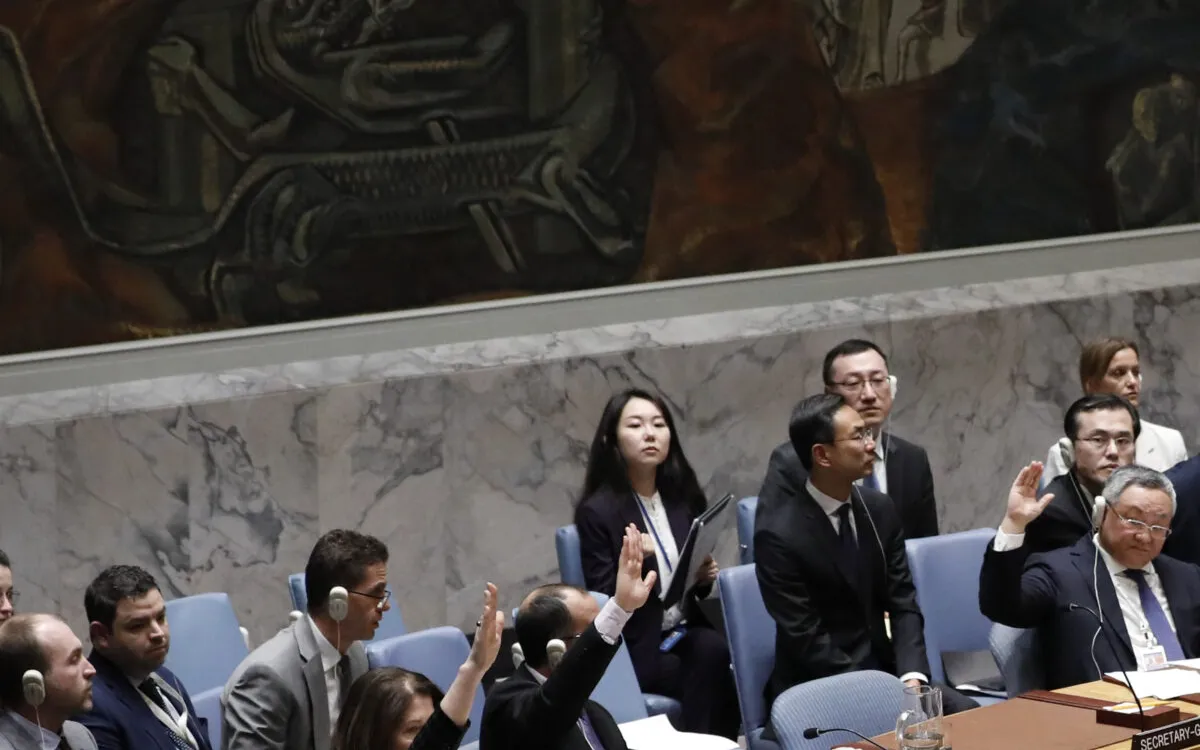
The Trump administration recently exerted significant pressure on Israel to vote against a U.N. resolution that affirmed Ukraine's territorial integrity and condemned Russia's invasion. This vote coincided with the three-year anniversary of the conflict, according to a source familiar with the discussions.
"There was a lot of pressure from the U.S., they really insisted," an Israeli official told Jewish Insider. "It came at all levels, at the U.N., in Washington and in Israel."
The resolution "is not our position," the official added, noting that the vote marked the first time Israel voted against Ukraine and alongside Russia since the onset of the war. "We preferred to avoid this situation. We had no choice but to take a side."
The official explained that while Israel "could have abstained," the country's recent requests to the Trump administration influenced their decision to align with the U.S. stance.
The pro-Ukraine resolution passed with a majority of 95 countries in favor, while 13 nations, including the U.S., Russia, and North Korea, opposed it. Sixty-five countries abstained, among them Argentina and several Arab states. An American resolution to end the war without specifically mentioning Russia's invasion did not pass.
President Donald Trump has stated his intention to broker a deal to end the war in Ukraine. He has controversially labeled Ukrainian President Voldymyr Zelensky as a "dictator" and accused him of initiating the conflict, which began with a Russian invasion in February 2022.
Despite Jerusalem's initial support for Kyiv during the early days of the war, including the provision of humanitarian aid and a field hospital, Israel faced criticism for hesitating to send military aid. Israel has maintained that it needs to keep open communication with Moscow regarding its presence in Syria and its relationship with the Jewish community in Russia.
Ukrainian Ambassador to Israel, Yevgen Kornichuk, expressed disappointment in Israel's vote. "The resolution was blaming Russia for the war and supporting Ukrainian territorial integrity. Israel could have abstained, and it voted against it," Kornichuk lamented.
Kornichuk compared Israel's vote to a hypothetical situation where Ukraine would vote against returning hostages to Israel, suggesting it was damaging to their relations.
Kornichuk criticized Israel's decision, noting that neighboring countries like Jordan and Egypt supported both the U.S. and Ukraine's resolutions. He highlighted that Ukraine has not supported Israel in U.N. resolutions targeting the Jewish state over the last decade, voting against Israel 75% of the time, according to UN Watch.
Despite Israel's justifications, Kornichuk used a similar rationale for Ukraine's voting behavior, stating, "we have to vote like Europeans because we intend to be part of the EU."
The ambassador mentioned that Kyiv might send a demarche, or diplomatic complaint letter, to Israel following the vote. Kornichuk, who also manages Kyiv's ties to the American Jewish community, is participating in the AIPAC Congressional Summit in Washington, where he plans to address American Jewish leaders about Israel's vote.
Kornichuk denied reports of a deal between Ukraine and Israel involving the transfer of Russian weapons captured from Hamas and Hezbollah in exchange for intelligence on Russian missiles used by Iran. He stated that Ukraine has requested these weapons multiple times, but Israel claimed they were destroyed.
Israeli Deputy Foreign Minister Sharren Haskel had previously proposed a bill to allow such weapons transfers, but Kornichuk noted that legislative approval is unnecessary, requiring only a decision from the Defense Ministry.
"We have the same enemy. We have been asking our Israeli friends to work closely with us on anti-missile programs," Kornichuk said. He mentioned ongoing interest in joint anti-drone efforts, expressing hope for closer cooperation due to shared threats.